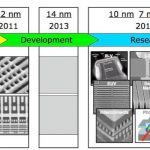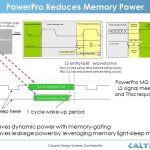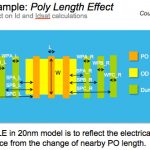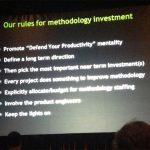In the 1990s, software developers were established users of software configuration management (SCM) tools such as open source RCS/CVS or of commercial systems such as Clearcase. Hardware designers, however, managed design data in ad hoc home-grown ways. ClioSoft’s founder, Srinath Anantharaman, recognized that hardware… Read More
Tag: eda
Startups: the Biggest Challenge
What is the biggest challenge facing an EDA startup today? By a startup, I mean a brand new company, not a company that already has a few customers and is either on a fast path to success or a slower path whereby the company can continue to grow slowly forever.
Obviously, one challenge is the funding environment. Since EDA acquisitions… Read More
TSMC ♥ Oasys
Oasys has joined the TSMC Soft-IP Alliance Program. This means that TSMC IP partners have access to a new RTL exploration tool to improve QoR and reduce the iterations needed for design closure. In modern process nodes, RTL engineers implementing complex IP cores for graphics, networking, and mobile computing are struggling … Read More
Dynamic/Leakage Power Reduction in Memories
Embedded memories have an important impact on power. SoCs that integrate multiple functions on a single silicon die are at the heart of many electronic devices. As process geometries have scaled, design teams have used more and more of the additional silicon real estate available to integrate embedded memories that serve as scratch-pads,… Read More
Building Energy-Efficient ICs from the Ground Up
My oldest son just upgraded Smart Phones from a 3″ display to a 4.5″ display and was shocked to discover that his battery barely lasted 8 hours, so I welcomed him to the reality of limited battery life in modern SoC-based mobile devices. There is some hope in increasing battery life for our consumer-oriented devices … Read More
Going to DAC 2013 in Austin? The Country’s Best Barbecue is a 20 Minute Walk
Going to DAC? I just booked my plane ticket last weekend since flights from the Bay Area to wherever DAC is are so often overbooked. It’s in Austin this year in case you’ve been living under a rock. There are lots of reasons to go, from the academic conference to the world’s biggest EDA exhibition. And here is one … Read More
Catch Jasper at SemiIsrael Verification Day and at DVCon 2013
Jasper is presenting at both ends of the world at both ends of February.
First in Israel, it is SemiIsrael Verification Day 2013 on February 5th (next Tuesday) at Green House in Tel Aviv.
- Zihad Hanna, VP of Research and Chief Architect and General Manager of Jasper Israel will be talking about Security Formal Verification of Hardware
Virtuoso is 20nm-ready
I already talked about how Cadence is splitting Virtuoso into two. Anyway, it is now officially announced. The 6.1 version will continue to be developed as a sort of Virtuoso classic for people doing designs off the bleeding edge that don’t require the new features. And a new Virtuoso 12.1 intended for people doing 20nm and… Read More
Improving Methodology the NVIDIA Way
I was at DesignCon in Santa Clara today and listened to Jonah Alben of NVIDIA’s keynote on what their approach is to improving design methodology. He started by pointing out that most companies underinvest in EDA (and he includes NVIDIA in this). Partially it is complaceny: that last chip taped out so we know we can do it again.… Read More
Get the Latest Info on DFM at the SPIE Litho Conference
While the SPIE Advanced Lithography conference is best known for IC manufacturing, computational lithography, mask preparation and other back-end topics, there is also a significant amount of interest in Design for Manufacturing (DFM) at the conference because some litho issues are best (or only) addressed by modifying the… Read More










